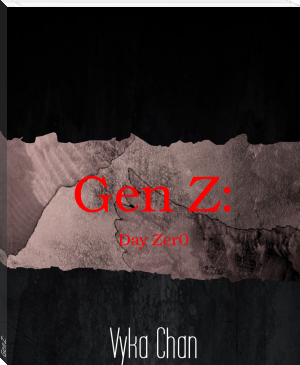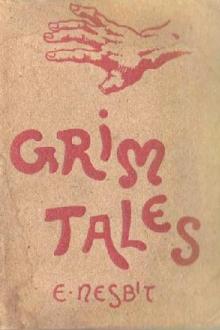Callisto 2.0 - Susan English (sad books to read .txt) 📗

- Author: Susan English
- Performer: -
Book online «Callisto 2.0 - Susan English (sad books to read .txt) 📗». Author Susan English
“This seems more like a colonization structure, or even a generational ship,” I said, thinking out loud. Diana looked back at me over her shoulder as we entered the lavender corridor, an unreadable expression on her usually open face. Had I said something inappropriate? “I’m very impressed,” I added quickly.
When we reached the lab module, she stopped at a door next to the physics lab.
“This is Naomi’s lab.” She opened the door, and I followed her inside.
Naomi was sitting at a computer console, her foot hooked around the rung of her chair. “Calli! Welcome.” She released her foot and pushed her way over to the door, grabbing a railing on the wall to keep herself from crashing into us. “Now you can meet 40
my babies!” She gestured with her free hand toward a complex of transparent tubes, each about six centimeters in diameter, and connected chambers, mounted on an entire wall of the lab.
Several mice were running along the tubes, which opened into what looked like miniature jungle gyms. More mice were in these areas, eating from feeding tubes, grooming themselves and each other, clinging to tiny, suspended ladders, running on exercise wheels, or curled up sleeping in cubby holes.
“You have mice!”
“They are my work, all created parthenogenetically, and I adore every single one of them. That’s why I prefer not being far from the station for very long.” Naomi looked over at the wall, a soft expression on her face. “I miss them.” She turned to me. “How did you like the tour?”
“This station is incredible.”
Diana touched my arm. Turning quickly, I had to grab the railing to keep myself from spinning out of control. Her hand was warm and soft, her touch gentle. My skin where her hand rested tingled. “I’ll leave you with Naomi, I have some administrative work to do. We’ll see each other at dinner.” She gave me an electrifying smile, and pulled her way out of the lab, shutting the door behind her.
I stared at the closed door.
“Hmm,” said Naomi. I turned to look at her. “It happens to all of us.”
“What are you talking about?”
“Diana.”
“What do you mean?”
“We all fall for her. Even us heteros.”
Heat blazed in my cheeks. “No, I, I mean, I’m not ….”
“Come on, I’ve seen the way you look at her.”
I turned away, focusing on the mice.
“Hear me out,” said Naomi, “she’s a delightful human being, and we all adore her, but don’t get your hopes up, because—”
“Can I hold one?” I interrupted, pointing to the mice. My mind was a bundle of confusion, and my body simultaneously hot and cold.
“Certainly, they are all dears.” We went over to what could only be described as a mouse condominium. Naomi opened a door, reached in, and carefully picked up a mouse. “This is Asteria. I call her Aster.” She held the mouse out to me.
I took Aster in my hands and held her close to my chest. My heart was beating wildly.
I tried to calm down, consciously slowing my breathing. As I stroked the mouse’s tiny body, my own relaxed, the tension draining out of me. “Why are there mice here?” I asked, petting Aster’s head with my fingertip. Aster looked up at me with her big, expressive eyes, and mine filled with tears. So many emotions, I didn’t know what to do with them.
“We hope to send them on a space journey.”
41
“You mean, they are guinea pigs?” My hold on Aster tightened.
Naomi looked at me with tenderness. “Listen, I know what you’re thinking: animal experimentation and all that. But if we, and I really mean you and Hadley, can develop the technology for ftl travel, we can’t instantly send a human. I love these mice more than I can say, but if it’s a choice between Aster and you, for example, losing Asteria would be far less devastating.”
“It’s up to me to make sure that no one is lost, mouse or human,” I vowed, thinking about Laika, a stray dog found in the streets of Moscow, who was the first Earth inhabitant to orbit her home planet. After hearing the story as a child, I couldn’t stop crying for days. At that time, the technology didn’t exist to bring a spacecraft back to Earth, so the plan was to allow the little mongrel to perish in space, completely alone.
The dog’s quick death, due to overheating, was, I supposed, a blessing.
“She fancies you,” Naomi said, pointing at Aster.
I looked down at the little mouse. “She’s very sweet.”
“Another mythological figure.”
“What?”
“Asteria, the Titan goddess. She had to run away from that hound dog, Zeus. What a pain in the arse he was. She turned herself into a quail to get away from him, you know the story.”
“Not really.”
“Oh, I figured with your name, you would be up on all that mythology stuff.”
I laughed. “I didn’t exactly choose my name.”
“Thought it suits you.”
Rubbing my cheek against Aster’s silky head, I watched as the other mice scurried around in the condo. “I always thought mice were nocturnal, but these girls seem really active, and it’s the middle of the day on the station.”
“Thanks to selective breeding, that trait has mostly faded in laboratory mice. It works for me. This way I have more opportunities to interact with them without disrupting their sleep cycles.”
“That makes sense.”
“Hey, it’s time for lunch,” said Naomi, glancing at her wrist computer. “Want to join me?”
I returned Aster to her friends and followed Naomi through the long corridors and into the dining room.
“The loo’s right there.” Naomi pointed to a set of doors on the other side of the room.
“How’d you guess?” I asked with a smile. After a quick detour I joined Naomi at the buffet table. The contents had me baffled. “What’s all this?” I asked, pointing to the bins filled with small, shiny balls, the size of large marbles.
“Oh, you’re probably used to micro-g food and drinks in biotex bags, aren’t you?”
“Uh-huh,” I said, reminded of the pabulum served on the Terra-Luna Express.
42
She picked up a bowl, handing it to me. Then she took another bowl for herself, opened the hinged lid, and began to fill it with different balls. “This is something the chefs on the Moon thought of. They felt sorry for us, eating reconstituted goo. Every one of these little balls,” she held up one to show me, “is a bite of food, in an edible wrapper. Like the water blobs on Earth.”
“Oh, sure, but these aren’t transparent like the edible water blobs.”
“You mean these.” She pointed toward a bin filled with edible water balls at the end of the buffet table.
“They’re made of some kind of algae I think.”
“Yeah, edible and flavorless. But our chefs are using the same technology for food.
Their process keeps the food fresh for weeks. So incredibly practical.” She popped a food blob into her mouth. “And delicious!” She pointed to the small placard attached to the buffet table. “There’s always a sign to tell us what we’re eating. Today is curried potatoes and lentils.”
Selecting a pair of chopsticks, I filled my bowl with the small balls, then took a few water blobs, and closed the lid to keep the balls in place as I carried the bowl to a table.
We sat, anchoring our bodies by hooking our feet on the rungs of our chairs. A strip of Velcro was affixed to the tabletop and also to the bottom of my bowl, and I placed my bowl on the strip.
I picked up a food ball with my chopsticks and put it my mouth. “Oh my god,” I said, or rather, “Mm mgh ghh,” my mouth full of food.
“I know! It’s good, isn’t it? I’ve never had better space food. You’ve got to know, everyone who works for the Foundation is a frigging artist. The chefs are geniuses. At the moment, everything is processed on the Moon, but soon we’ll be doing it ourselves, with the food we’re growing here on the station’s farm. Mei Xing and Fae, they’re the station ops crew, are working on it as an extra project.”
I took another bite of food, breaking the rubbery membrane with my teeth and savoring the burst of flavors. “Hey, I like the mouse condo by the way. Did you design it?”
“Mouse condo!” She grinned at me. “What a brilliant description, I love it! Yes, it’s my design. I wanted to create an environment where the mice could move easily in micro-g, and spaces where they could sleep, like little dens. The tubes are just the right diameter so that the mice can run without the danger of floating off into space, and the inner surface is lined with a transparent cloth they can grab onto with their claws. There are also games and puzzles for the mice to solve for treats, and every month or so I tamper with the design a bit, so they have new places to explore.”
“How do you deal with, um, the poop?”
“My mice are very well trained,” said Naomi, straightening in her chair, a hint of pride in her voice. “There are a few ‘toilets’ in the condo.” She smiled at me when she said the last word. “The mice go in, to do their business, pooing or weeing on a special substrate which absorbs it all, and also disinfects their feet. There’s a light suction below 43
the substrate, so if the mouse’s aim is imprecise, the waste still goes to the right place.
Then the substrate is automatically recycled.”
“Clever. I assume the mice take the same pills we do to counteract the negative physiological impact of microgravity.”
Naomi snorted. “If only! I tried pills, but it was a nightmare convincing the mice to eat them, so I developed a delivery system. It’s an implant, and it gives the correct dosage every six hours. We humans only need a dose every twenty-four hours, but the mice are so small, and their metabolism is awfully fast, so an implant was the best solution.”





Comments (0)